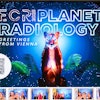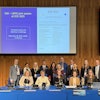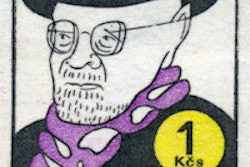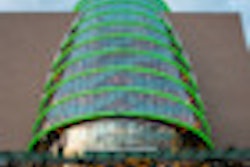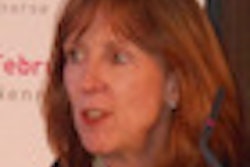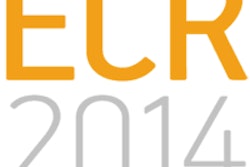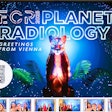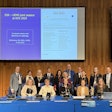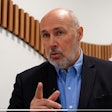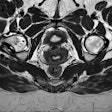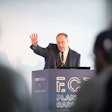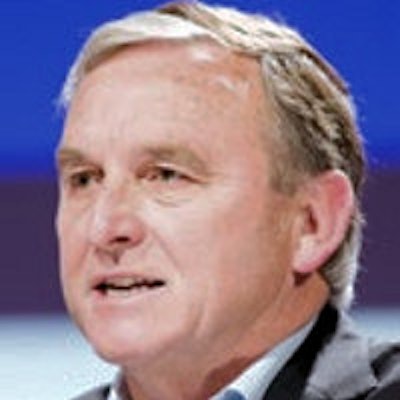
VIENNA - The future well-being of radiology hinges not on where the specialty will go, but on what role radiologists will play in the delivery of healthcare and how they can stimulate the research enterprise, according to Honorary Lecturer Albert de Roos, PhD.
"We have to develop new techniques and keep running and explore the technology," de Roos said in a plenary session on Friday. "We have to start doing research earlier in our careers and not leave it too late, and we have to develop a mentoring program, as suggested by ESR [Euoropean Society of Radiology] statements. Find the best mentors in the hospital, and learn to write articles from the start, which is not a major thing but rather like riding a bike: When you know the principles, everybody can learn how to do it."
 Albert de Roos, PhD, from Leiden, the Netherlands.
Albert de Roos, PhD, from Leiden, the Netherlands.
Get good guidance from the beginning, be creative in designing new concepts, and dedicate yourself to a specific organ system and the relevant clinical applications, urged de Roos, a professor of radiology at Leiden University Medical Center in the Netherlands. Don't concentrate only on the technology, he said.
Among the key factors in motivating researchers are to provide support and encouragement, stick to deadlines, reply to communications, exhibit high professional standards, attend regularly scheduled meetings, and let them work independently at some time. Also, it's important to remember research should be fun but also intriguing, and be respectful, supportive, and encouraging.
Get involved in editorial work, he continued. For instance, consider becoming a reviewer for journals, because performing this valuable role helps to stimulate a person's interest in a wide range of topics.
In de Roos' own area of expertise, cardiovascular imaging, the main research opportunities include integration of cardiac and pulmonary imaging, information business for all disciplines, and new research opportunities and directions -- all of which can help radiology to survive, he said.
For everybody, however, the key points from the ESR's 2012 statement on education in research are worth bearing in mind:
- Research is the future for radiology.
- Appeal to the best students.
- Radiologists' time is limited for research.
- Researchers are recruited rather late in their careers.
- Develop a structured mentoring program.
- Exposure of all residents to research training.
- Give more guidance for career planning and skills.
In addition, De Roos cited comments made by Dr. Lawrence Muroff, a clinical professor of radiology at both the University of Florida and University of South Florida colleges of medicine in the U.S.: "The future of radiology is bright, but the future for radiologists is far less certain." and "Outsourcing of imaging teaches hospital administrators that relationships don't matter, and anyone can do it, at any time."
De Roos also quoted from an article by L.R. Sante in a 1925 edition of Radiology: "The most serious threat of these is the commercial laboratory, usually owned by laymen and operated by an insufficiently trained physician, who accepts a small salary in order to get the benefit of a large experience. The dollar being the foremost consideration."
Summing up, he said he particularly liked the following quote from Indira Gandhi, the Indian politician: "My grandfather once told me that there were two kinds of people: those who do the work and those who take the credit. He told me to try to be in the first group; there was much less competition."
Originally published in ECR Today on 8 March 2014.
Copyright © 2014 European Society of Radiology

